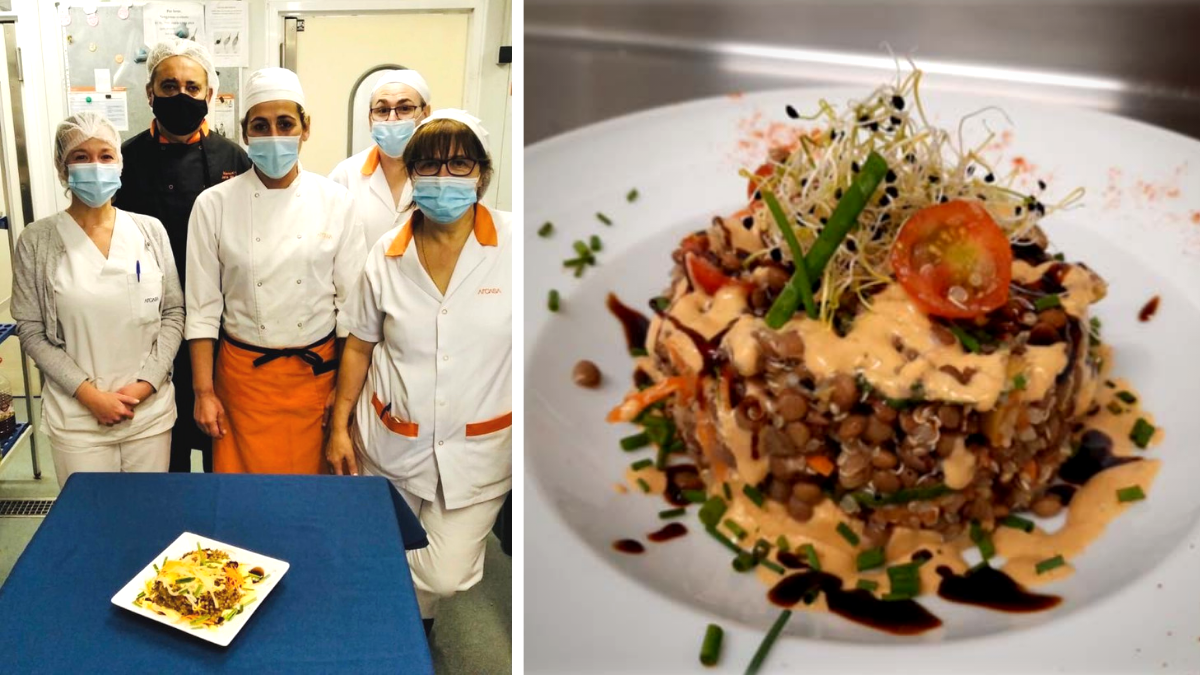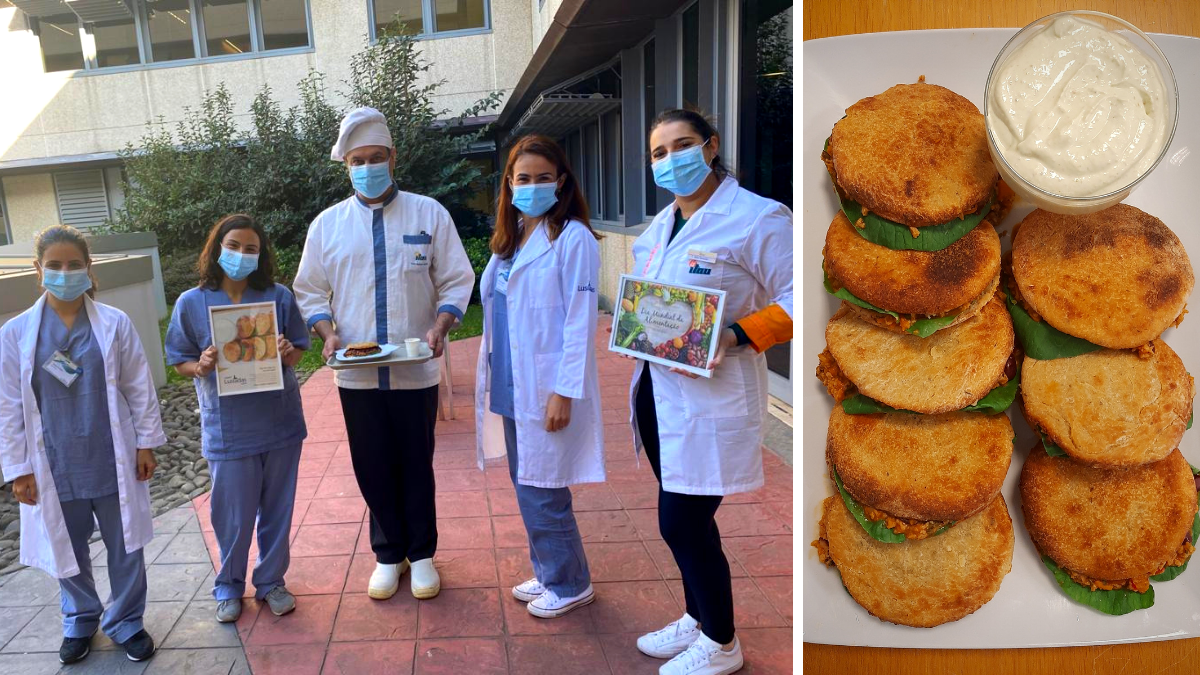Rethinking hospital food: Plant-based culinary challenge
For this year’s World Food Day (October 16), HCWH Europe invited some of its members to participate in a plant-based culinary challenge and help change the way people think about hospital food through innovative, plant-forward, sustainable, and budget-friendly recipes. Over thirty hospitals from across Europe participated in the contest following the rules:
- Present a main course or snack served in your healthcare facility, including breakfast, lunch, and dinner
- The dish must be plant-based i.e. reduced amounts of animal protein (max. 50g per serving) and mostly comprise fruits, vegetables, whole grains, pulses etc.
- The dish must reflect evidence-based principles of health and sustainability
- The dish must be easy to replicate in other hospitals
- A full list of ingredients and origin of products must be provided along with the recipe and any other relevant information
- Serve the dish in your healthcare facility on World Food Day 2020 and promote it on social media with at least one photo showing your dish and culinary team
The joint winners of the contest were announced during the recent CleanMed Europe 2020 conference as part of the session Plant forward diets: Good for your health and the planet:
- The Duran i Reynals Hospital (Catalan Institute of Oncology) – Barcelona, Spain
- The Lusíadas Hospital - Lisbon, Portugal

The Duran i Reynals Hospital (Catalan Institute of Oncology) is a centre for the treatment of cancer in patients diagnosed within the Costa de Ponent healthcare division. With around 85 beds, and 348,00 meals served per year, food service at the hospital is managed by the Arcasa, who received the prize with enthusiasm and were keen to outline that the winning recipe was the result of a collective effort.
The idea behind their winning recipe – a quinoa, lentil, and red pesto salad - was to create a more innovative dish using legumes as a base. The recipe is composed of high-quality ingredients and is very nutritious, highlighting plant-based proteins. It is low in saturated fat and rich in fibre and energy, which makes it a complete dish - balanced, sustainable, healthy, and suitable for the majority of patients.

The Lusíadas Hospital, Lisbon offers the most advanced technological services, supported by experienced clinical staff. With 152 beds and capacity for 42,400 inpatients per year, the hospital serves around 46,000 main meals (lunches and dinners) annually.
For their winning recipe, the hospital’s chef, Marco António, found inspiration in the traditional kebab with pita bread. He took the traditional recipe and tried to reimagine it by making the ingredients as sustainable as possible. The Nutrition Department chose this recipe for the contest because they wanted to show to employees and visitors to their hospital cafeteria that a dish which people usually love (which normally contains meat and processed ingredients) can be healthy and tasty as well. The recipe, which included vegetable protein, seasonal vegetables, and minimally processed ingredients, offers many health and environmental benefits.
Rethinking hospital food – a diet for the future
Many in the healthcare sector recognise that climate change is the greatest public health threat of our time, and are now beginning to address the sector’s contribution to this crisis by reducing their greenhouse gas emissions through alternatives to fossil fuels for example. We now know, however, that the greatest source of a healthcare facility’s emissions come from ‘scope 3’, primarily goods and services including food, so we must consider the sustainability of all aspects of healthcare.
The HCWH Europe team would like to congratulate both our winners and once again thank all of our members who submitted their recipes. You are all setting a fantastic example of how healthcare facilities can change the way people think about both hospital food and healthy food, as well as making them think about the sustainability of their meals.
If you are a doctor and would like to find out how you can take action to reduce the environmental impact of healthcare delivery, become a powerful environmental and health advocate, and find out more about how sustainable food in healthcare, join the Doctors for Greener Healthcare network today.
Stay up to date on all of the latest Sustainable Food news from HCWH Europe, subscribe to our newsletters here.
